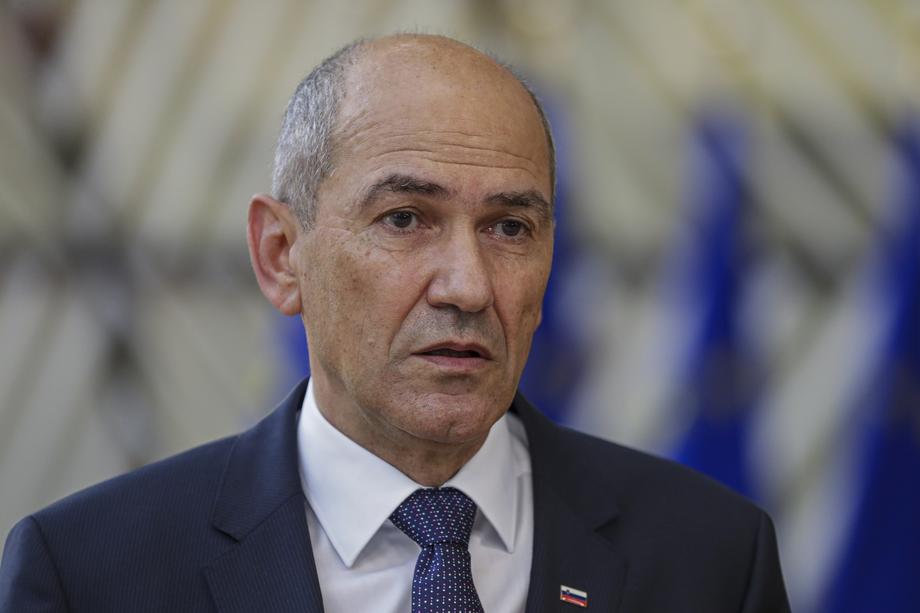“Great yield. It turned out that there was some consensus in the difficult negotiations. The interest of the economic recovery prevailed over the various political interests in Europe. I think that the Prime Minister negotiated very well and that Slovenia will have really nice benefits in the coming years. It is now up to us to prepare the appropriate programmes and projects, with which we will use these funds well, for our social and economic development,” long-time political analyst Sebastjan Jeretič commented on the negotiations at the European Council on the future EU financial perspective, which were led by Prime Minister Janez Janša. Jeretič also added that with the new government, Slovenia is repositioning itself within Europe.
The negotiations on the distribution of funds for the next seven years, which were happening in Brussels, have concluded. Under the leadership of Prime Minister Janez Janša, Slovenia has performed very well, with 10 billion euros available over the next seven years, of which 6 billion will be European grants. “I think he held up well. His communication reflects a certain solidity and continuity, but above all, a determination in the fact that Slovenia is a serious and worthy player on the international stage. That we by no means belong to the margin of the events,” Edvard Kadič, an expert in body language and communication, commented on the Prime Minister’s performance in recent days. Sebastjan Jeretič, who highlighted Janša’s many years of experience, shares a similar opinion. “Slovenia was a factor in these talks. I believe that Slovenia is repositioning itself within Europe.”
Fifteen years of following the German French train has not brought any special benefits to Slovenia. “We remain at the periphery, we remain irrelevant on that train,” Jeretič warned, so according to him, now is the opportunity for Slovenia to position itself differently on the European map. Jeretič also said that with the change in foreign policy, we have fallen into a kind of propulsive block. “But we will have to see here how this framework of the undemocratic nature, which is attributed to this block, will affect us. The whole block also needs to figure out how to change this view of Western Europe.”
The Visegrad Group represents a much better positioning in the environment of the European Union
Kadič is also very pleased with the fact that Slovenia has been successful in the negotiations. With the government taking action to alleviate the people’s distress during the worst times of the epidemic, it was clear that sooner or later, the funds would have to be repaid. “Given what we have heard so far, I also think it is good that these negotiations turned out positively for Slovenia, in the sense that there were no major conditions behind it that could have possibly affected Slovenia’s political future.”
Kadič went on to tell us that the Visegrad Group is just a group of four Central European countries that have come together on the basis of a common political vision and interest. Nevertheless, Kadič pointed out that it is very important for Slovenia to connect with a group of countries that have more push. Unfortunately, we are not aware enough of the fact that this is an international environment, “especially for the promotion of our own interests. If a group or the leaders of a group found that their interests were not being sufficiently respected, or that they are not able to assert them individually, and if this also serves the interests of Slovenia without hindering the common interests of the entire EU, this is, in my opinion, positive. Attributing a negative connotation to such associations can be very ungrateful, and such actions can have anything but good intentions.”
The left is not acting in the interest of the state
During the negotiations, the left-wing opposition was constantly harshly criticizing, as they accompanied every move of the Prime Minister with sharp attacks. Kadič finds it understandable that the opposition wants to express its views and influence its voters, but he misses the picture of unity in advocating for the interests of the state. “Sometimes, following the various records and speeches of the current opposition leaders, I get the feeling that for them, their own, partial interests are at the forefront, rather than the common interests of Slovenia. This is certainly not the best for the common good of the country. “
With this, Jeretič also believes it is important that the funds are drawn in a smart way. Slovenia could most easily use these funds for large state projects, “as this is the easiest way to do it. On the other hand, it is very important that these funds also reach small and medium-sized enterprises. I think the de-bureaucratization programme will be one of the key issues in the coming months. “
Luka Perš

